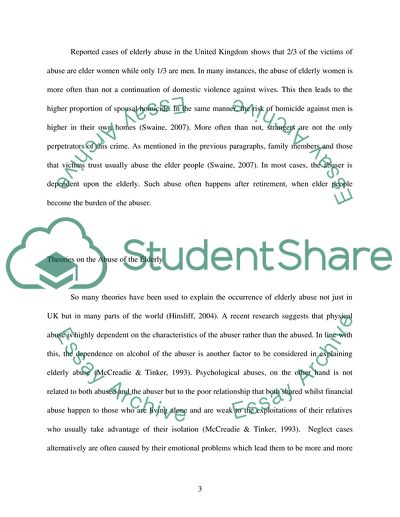Cite this document
(Elderly Abuse in the UK Literature review Example | Topics and Well Written Essays - 4250 words, n.d.)
Elderly Abuse in the UK Literature review Example | Topics and Well Written Essays - 4250 words. Retrieved from https://studentshare.org/social-science/1709585-critically-discuss-the-evidence-that-elderly-abuse-is-a-social-problem
Elderly Abuse in the UK Literature review Example | Topics and Well Written Essays - 4250 words. Retrieved from https://studentshare.org/social-science/1709585-critically-discuss-the-evidence-that-elderly-abuse-is-a-social-problem
(Elderly Abuse in the UK Literature Review Example | Topics and Well Written Essays - 4250 Words)
Elderly Abuse in the UK Literature Review Example | Topics and Well Written Essays - 4250 Words. https://studentshare.org/social-science/1709585-critically-discuss-the-evidence-that-elderly-abuse-is-a-social-problem.
Elderly Abuse in the UK Literature Review Example | Topics and Well Written Essays - 4250 Words. https://studentshare.org/social-science/1709585-critically-discuss-the-evidence-that-elderly-abuse-is-a-social-problem.
“Elderly Abuse in the UK Literature Review Example | Topics and Well Written Essays - 4250 Words”, n.d. https://studentshare.org/social-science/1709585-critically-discuss-the-evidence-that-elderly-abuse-is-a-social-problem.


